by Mehmet Rakipoğlu & Ömer Ekrem Keçeci
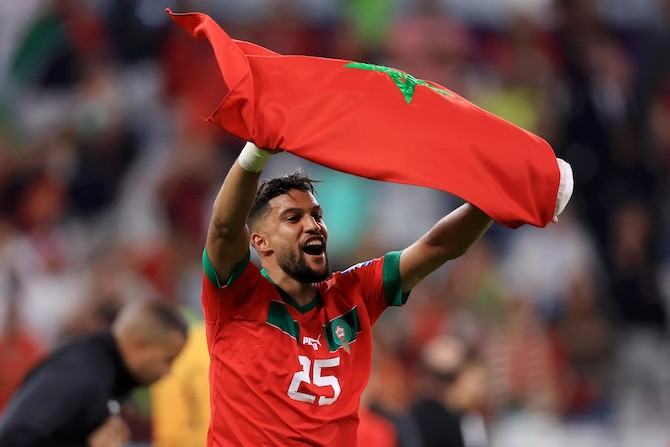
The Moroccan national football team became the first Arab African team to reach the semi-finals in World Cup history. Even though the French team beat Morocco, their achievements cannot be overshadowed. Thanks to the Moroccan team’s loving attitude and success, they quickly gained the appreciation of millions of people around the world; many even consider their success revenge on colonialism. Morocco’s surprising semi-final and fighting spirit show that the tournament is about more than just football.
The Role of the Diaspora in the Moroccan National Team
Of the 26 players on the Moroccan national team, 14 were born outside Morocco. The Moroccan Football Federation has been closely following Moroccan talents who grew up in Europe with the “bring back talents belonging to the soil” campaign, which started in 2014. Since then, Ziyech in 2015, Boufal in 2016, Amrabat in 2017, Mazraoui in 2018, and Hakimi and Haddadi in 2021 have preferred to play for the Moroccan team. Coach Walid Regragui also stated that the president of the federation played a “vital role” in their success.
It seems that there are different motivations in their preferences. In 2019, Hakim Ziyech claimed that he chose Morocco because he followed his heart on the words of his mother and siblings. Similarly, Sofian Amrabat is known to have chosen Morocco instead of the Netherlands after speaking to his family. Achraf Hakimi explained that he did not have the Arab and Moroccan culture he was used to in Spain, so he turned away from them and preferred Morocco. Considering that the players in question would have been important to the Dutch and Spanish teams if they had chosen, it can be argued that many Moroccan players had emotional reasons for their decision.
However, there are also those who make decisions for professional reasons. Munir El Haddadi had previously chosen Spain and said that he had no regrets. During the UEFA championship with Sevilla in 2020, he provoked a reaction from Moroccans by waving the Amazigh flag instead of a Moroccan one. However, Haddadi fell as far as Getafe in his career and turned to Morocco when there was no hope for the Spanish national team. Bayern Munich player Mazraoui, on the other hand, stressed the importance of making a good choice for a good career when asked why he chose Morocco despite the fact that he is a rising star and despite interest from the Netherlands.
According to some Moroccan journalists, other players chose Morocco because they thought they would not have a chance in European teams and wanted to play in the World Cup. The example of Mesut Özil in particular suggests that no matter how successful you are, you can be made a scapegoat by your origins at the first failure. Despite being very young and talented, the racist messages Marcus Rashford, Jadon Sancho and Bukayo Saka received from many Britons for missing a penalty in the last European Championship are still fresh in the memory. In fact, a study found that Moroccan players Amrabat and Ziyech were “othered” by many Dutch people, and Jawad el Yamiq was also subjected to racist attacks in Spain.
In short emotional ties, professional concerns and the political situation in Europe seem to play a critical role in the building of Moroccan national team’s success. In addition to these, it is necessary to mention the contribution of Regragui. Thanks to Moroccan coach, Ziyech and Mazraoui wore the national jersey again.
Beyond Football
Morocco’s success has managed to unite Africans, Arabs, and the Muslim world behind them. From the offices of the Senegalese and Nigerian presidents to the streets of Jerusalem, Gaza, and Baghdad, Morocco was supported. In Turkey, deputies of the government celebrated the Moroccan victory against Portugal as a success against the “colonialists” and chanted for Morocco.
The Moroccan National Team, too, has different perspectives on the situation. In the press conference before the France match, coach Regragui said, “We want to make history for Africa, for the Maghreb, as well as for our Algerian, Tunisian and Egyptian brothers.” After the match against Spain, Moroccan player Sofian Boufal said, “This victory belongs to all Moroccans, all Arab peoples and all Muslims in the world.” Moroccans are also appreciated for celebrating each achievement with the Palestinian flag and displaying sincere Islamic worship. All this character they exhibited is seen as a source of self-confidence and optimism. More importantly, they reacted to the reflections of the colonial mentality by clinging on to their own values, identities and homeland against Europe, which became a centre of attraction through exploitation.
Essentially, the trophy revealed Arab solidarity in general. The Yemenis supported the Saudis despite the war, and the Algerians backed the Moroccans despite the Western Sahara conflict. Some scholars interpreted this solidarity as the rise of soft Arabism. This notion refers to Arabism in the soft areas such as media, entertainment, and sports. In contrast to the division in politics in ‘hard’ areas, Arab unity is seen in soft areas. Even though we know that 88% of Arabs are opposed to the recognition of Israel, their support for Palestine and reaction to Israeli reporters at the World Cup revealed a truth much more tangible for politicians and, indeed, for everyone else: Although statesmen are inclined to so-called ‘normalisation’ with Israel, Arab peoples are not dragged along them.
Therefore, the success of the Moroccan national team, from the constitution of the team to its behaviour during and after the matches can be interpreted as a reflection of a mentality against imperialism and colonialism.
This piece was first published by Anadolu Agency under the title: ‘OPINION – Political Dimension of Morocco’s Success in World Cup’.
[To read more on this and everything Middle East, the LSE Middle East Centre Library is now open for browsing and borrowing for LSE students and staff. For more information, please visit the MEC Library page.]



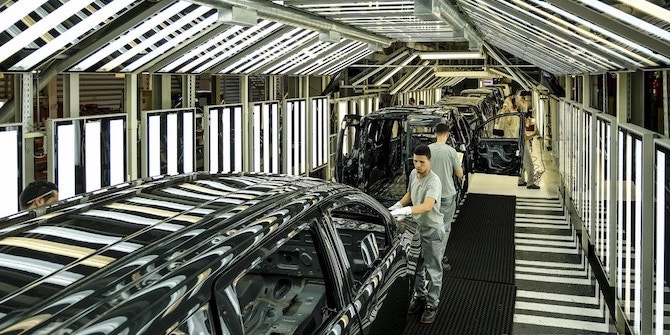
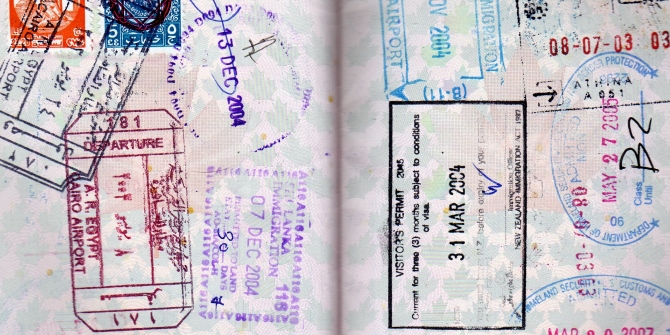
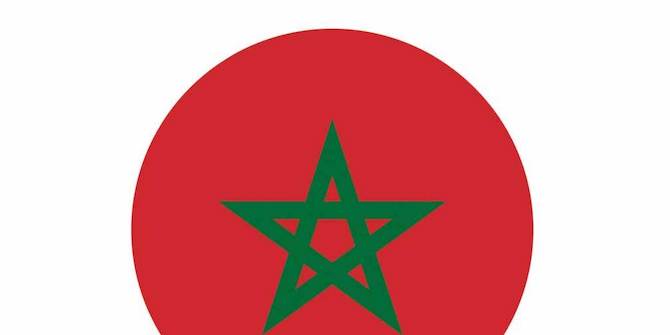
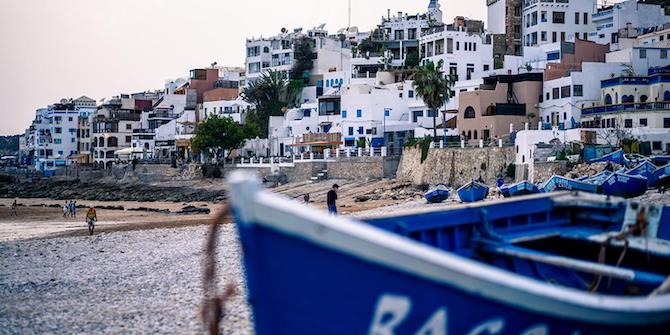
4 Comments